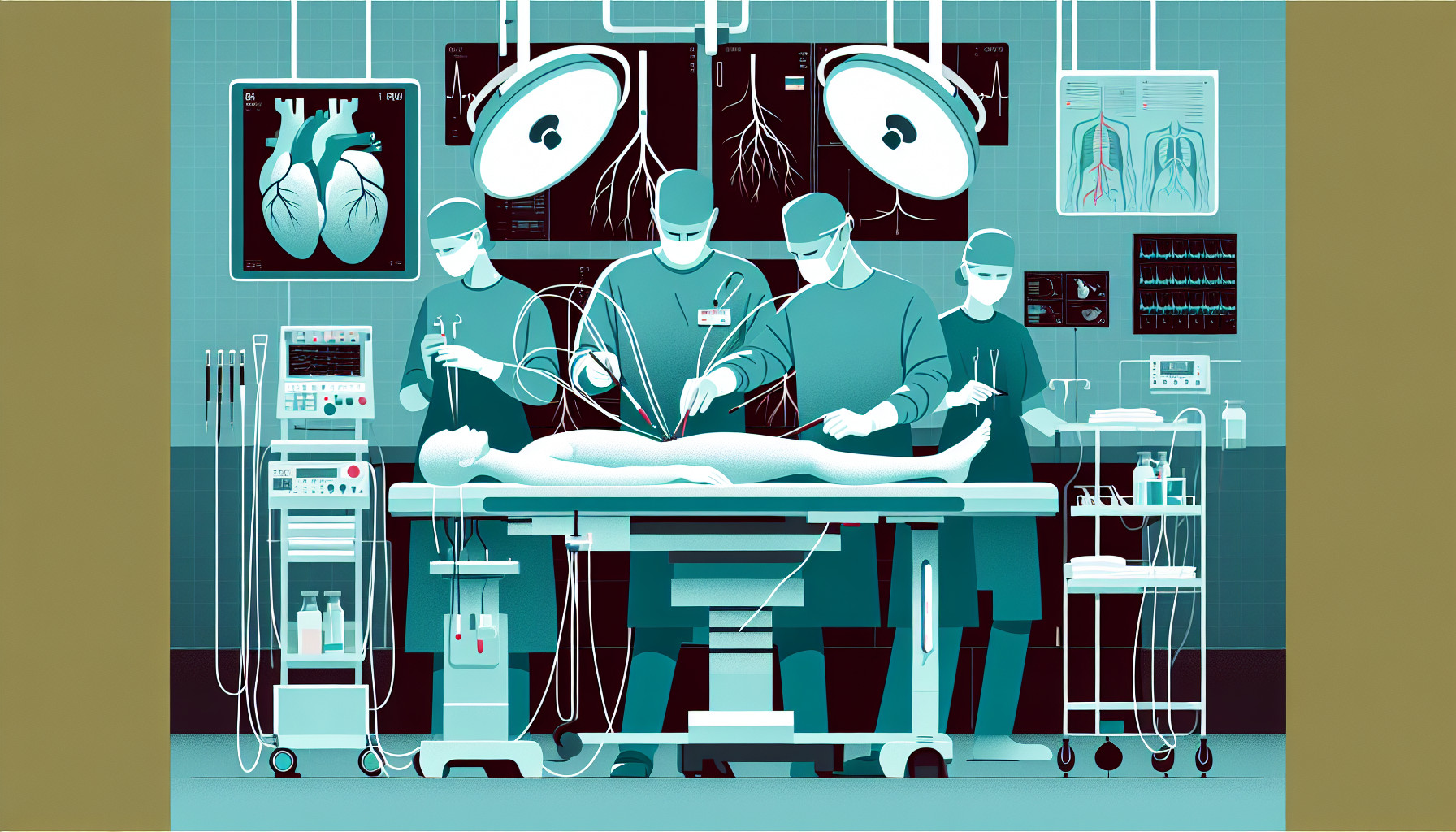Our Summary
This research paper discusses the challenges in creating effective, small artificial blood vessels for use in bypass surgery when natural grafts are not available. Current commercially available grafts are mostly made of plastic, which are strong but lack flexibility and can trigger unwanted biological reactions. Efforts to use tissue-engineered grafts, either through using animal vessels or from long-term cell culture, have not lived up to expectations in a clinical setting. The paper emphasizes the need for better solutions that can be easily applied in medical practice. It mentions that recent progress in the use of natural materials could potentially result in stronger and more reliable artificial blood vessels.
FAQs
- What are the challenges in creating small artificial blood vessels for bypass surgery?
- What are the issues with current commercially available grafts for bypass surgery?
- What recent progress has been made in developing more reliable artificial blood vessels?
Doctor’s Tip
A doctor might advise a patient undergoing vascular bypass surgery to follow a healthy lifestyle, including regular exercise and a balanced diet, to promote overall vascular health and reduce the risk of complications post-surgery. Additionally, they may recommend closely monitoring blood pressure and cholesterol levels to prevent future blockages in the bypassed vessels. It is important for the patient to follow all post-operative care instructions provided by their healthcare team to ensure a successful recovery.
Suitable For
Patients who may be recommended for vascular bypass surgery include those with blocked or narrowed arteries due to conditions such as peripheral artery disease, coronary artery disease, or carotid artery disease. Individuals with diabetes, high blood pressure, or a history of smoking are also at higher risk for vascular issues that may require bypass surgery. Additionally, patients who have had previous bypass surgeries that have failed or become blocked may also be candidates for vascular bypass.
Timeline
Before vascular bypass:
- Patient is diagnosed with a blockage or narrowing in a blood vessel, often due to atherosclerosis.
- Patient undergoes imaging tests such as ultrasound or angiography to determine the location and severity of the blockage.
- Patient may undergo lifestyle changes, medications, or minimally invasive procedures to improve blood flow before considering surgery.
- If surgery is deemed necessary, patient and healthcare provider discuss the risks and benefits of vascular bypass surgery.
- Patient undergoes pre-operative evaluations and tests to ensure they are a suitable candidate for surgery.
After vascular bypass:
- Patient undergoes vascular bypass surgery, where a new blood vessel (either natural or artificial) is used to bypass the blocked or narrowed section of the blood vessel.
- Patient is closely monitored in the hospital post-surgery for any complications or signs of rejection of the bypass graft.
- Patient may experience pain, swelling, and limited mobility in the surgical site during the initial recovery period.
- Patient undergoes physical therapy and rehabilitation to regain strength and function in the affected limb or area.
- Patient continues to follow up with their healthcare provider for regular check-ups and monitoring of the bypass graft to ensure it remains functional and free from complications.
What to Ask Your Doctor
- What is a vascular bypass surgery and why is it recommended for my condition?
- What are the potential risks and complications associated with vascular bypass surgery?
- How long is the recovery time after vascular bypass surgery and what can I expect during the recovery process?
- Are there any alternative treatment options to vascular bypass surgery that I should consider?
- What type of graft material will be used for the bypass surgery and why was this choice made?
- What are the success rates of vascular bypass surgery for my specific condition?
- How long can I expect the bypass graft to last and what are the factors that can affect its longevity?
- Will I need to make any lifestyle changes or take medications after the surgery to maintain the health of the bypass graft?
- Are there any specific activities or behaviors that I should avoid to prevent complications after the surgery?
- How often will I need follow-up appointments to monitor the health of the bypass graft and my overall vascular health?
Reference
Authors: Moore MJ, Tan RP, Yang N, Rnjak-Kovacina J, Wise SG. Journal: Trends Biotechnol. 2022 Jun;40(6):693-707. doi: 10.1016/j.tibtech.2021.11.003. Epub 2021 Dec 6. PMID: 34887104
